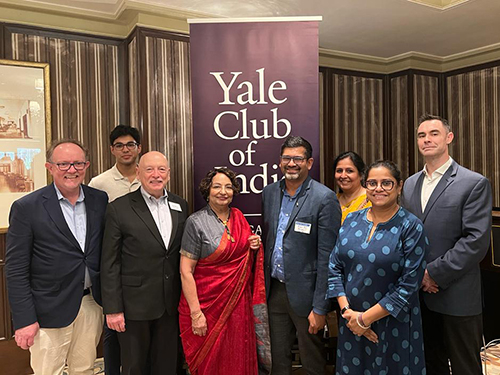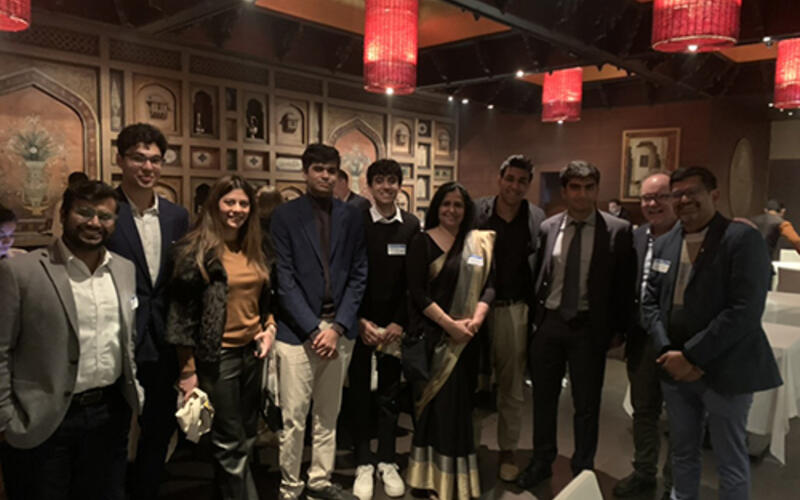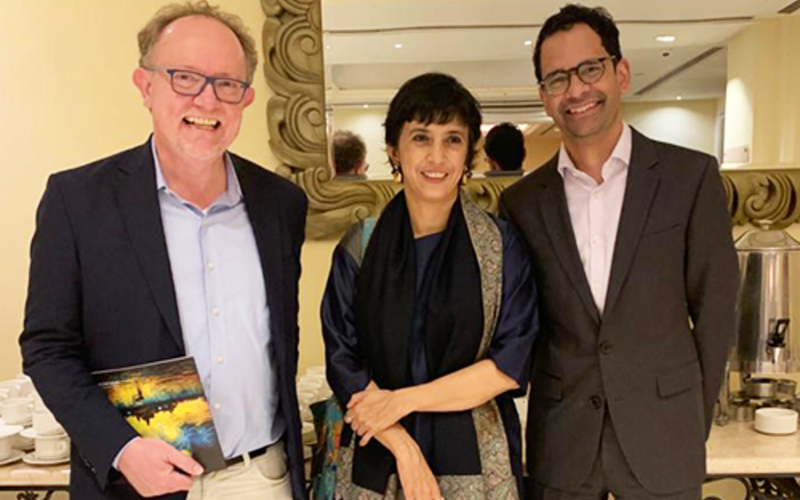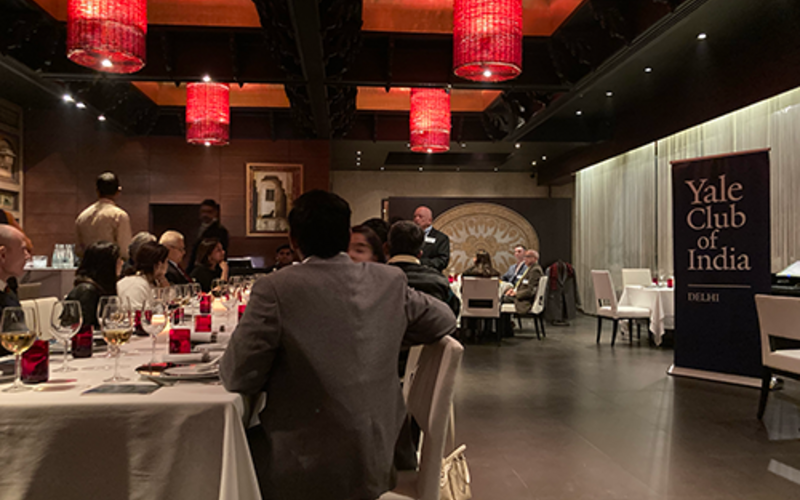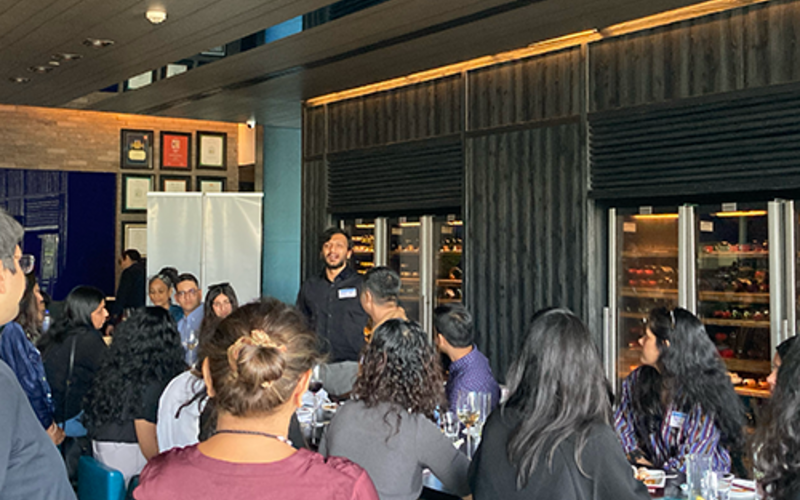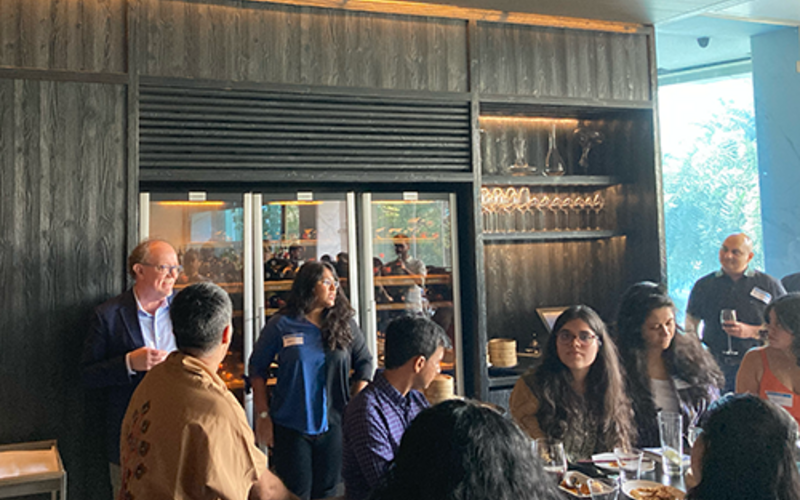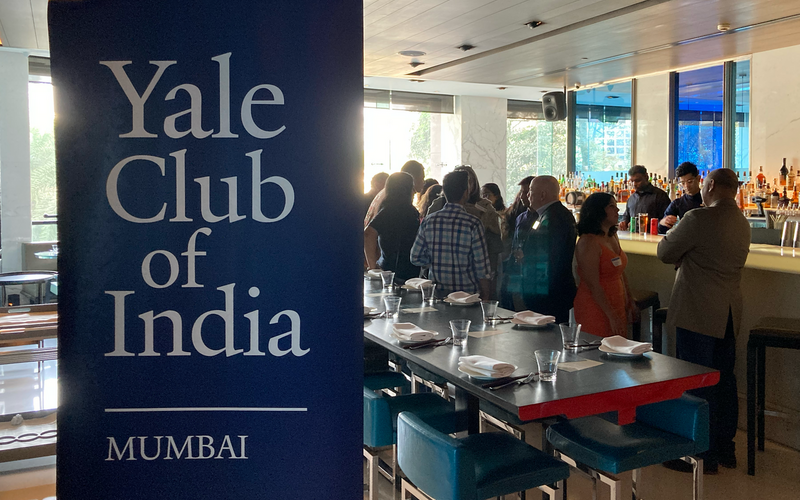With a recent series of trips across India, Nepal, and Pakistan, Yale leadership, along with South Asian Studies Council (SASC) faculty and staff, affirmed and celebrated the ties that have been forged in the region over more than a decade.
In 2008, then-Yale president Richard Levin announced the establishment of the Yale India Initiative, which committed $75 million, multiple endowed professorships, and university-wide resources to the study of South Asia at Yale. In the ensuing 14 years, the initiative has borne fruit far beyond its initial scope.
On his trip to India in early January 2023, Steven Wilkinson, Vice Provost for Global Strategy, Henry R. Luce Director of the MacMillan Center, and Nilekani Professor of India and South Asian Studies, emphasized that in the Department of Economics alone, there are now six faculty working on South Asia—despite the fact that the department has no endowed professorships dedicated to the region. The South Asian Studies Council currently includes 48 faculty in disciplines ranging from public health to astronomy to religious studies.
“Over the past decade, Yale has quietly built up what we think is the finest group of scholars who study South Asia of any of our peers,” Wilkinson said. “It’s a great time to be studying South Asia at Yale.”
In November 2022, Rohini Pande, Henry J. Heinz II Professor of Economics and Director of the Economic Growth Center, visited Nepal to celebrate the official launch of Inclusion Economics Nepal at Governance Lab. Inclusion Economics, a collaboration between the Economic Growth Center at Yale and the MacMillan Center, is dedicated to policy research and interventions that “promote inclusive and accountable states, markets, and societies.” There are now Inclusion Economics locations in New Haven, India (at the Institute for Financial Management and Research/Krea University), and Nepal.
In tandem with Pande’s visit, SASC Program Director Kasturi Gupta gathered Yale alumni in Kathmandu for a series of events.
Faculty and staff also made Yale’s first official visit to India in three years January 7-14. Professor Steven Wilkinson; Sunil Amrith, Renu and Anand Dhawan Professor of History; Rohit De, Associate Professor of History; and Swapna Sharma, Senior Lector in Hindi and Language Program Director, were joined by administrators from the Yale Alumni Association, Yale Office of Development, and Office of International Affairs in a trip that stopped in Bangalore, Delhi, and Mumbai.
In Bangalore on January 7, the team celebrated Professor Rohini Pande as she accepted the 2022 Infosys Prize for Social Sciences “for her research on governance and accountability, women’s empowerment, the role of credit in the lives of the poor, and the environment.” Pande is the third Infosys Prize winner on Yale’s faculty, as Amrith and Professor Kaivan Munshi (Economics) both won the prize in 2016.
In Delhi, the Yale team visited Ashoka University and brought together area alumni for an evening reception. The trip wrapped up in Mumbai with a third alumni reception hosted by the Yale Club of India. In all, the receptions engaged over one hundred and twenty alumni and affiliates from across the university and helped mark the post-COVID renewal of the Yale Club of India.


